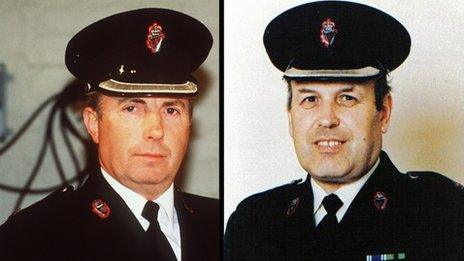What is meant by collusion and collusive behaviour?
- Published
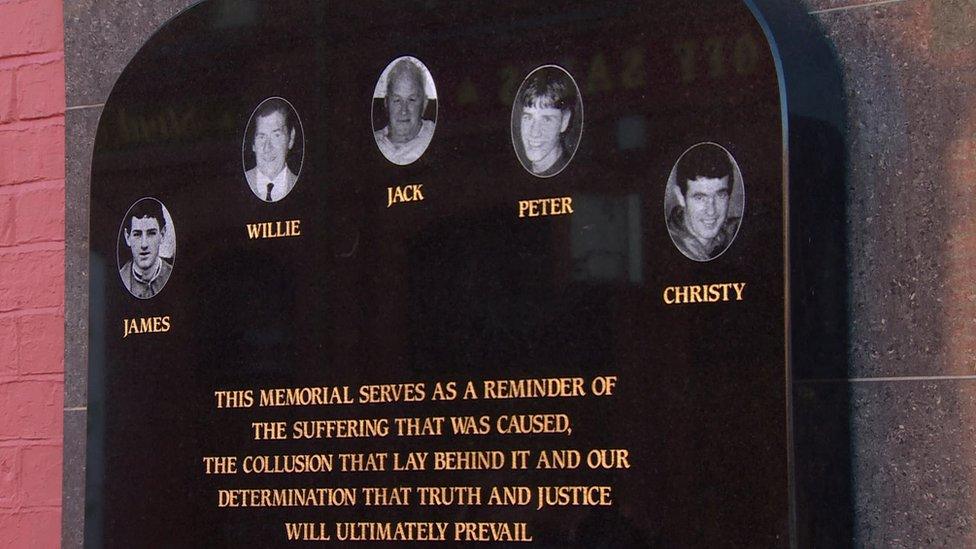
The Police Ombudsman found "collusive behaviour" by police in 11 loyalist murders, including the 1992 attack at the Sean Graham betting shop
The term collusion has been raised in several official reports and inquiries related to the Northern Ireland Troubles over the past two decades.
But what does it mean?
It is worth stating there is no offence of collusion, although it may involve a criminal act. It has been said to have many faces.
Generally, it covers a broad range of behaviours, from deliberate wilful actions to "a look the other way" approach.
There is no universally-accepted definition of collusion, but from 2003 onwards judges and others have spelled out what it means in a Northern Ireland context.
Two opinions became heavily relied upon at an early stage.
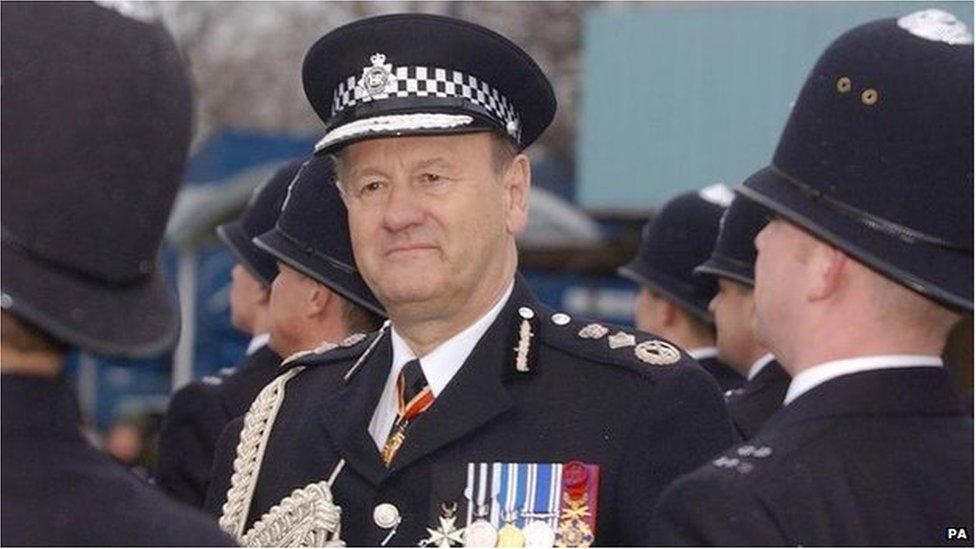
Sir John (now Lord) Stevens investigated allegations of collusion in several murders when he was police commissioner
Sir John (now Lord) Stevens, when he was commissioner of the Metropolitan Police, was among the first to investigate ties between state security forces and loyalists.
He said collusion ranged from "the wilful failure to keep records, the absence of accountability, the withholding of intelligence and evidence, through to the extreme of agents being involved in murder".
Shortly after this, Canadian judge Peter Cory was appointed to examine collusion allegations in six specific cases.
He formed the view that any definition needed to be reasonably broad "because of the necessity of public confidence" in state forces such as the police.
For Judge Cory, it covered "ignoring or turning a blind eye to the wrongful acts of (state) servants or agents".
He also cited supplying agents with information to "assist in wrongful acts", or "encouraging them" to commit offences.
The views of Judge Peter Smithwick are also worth noting.
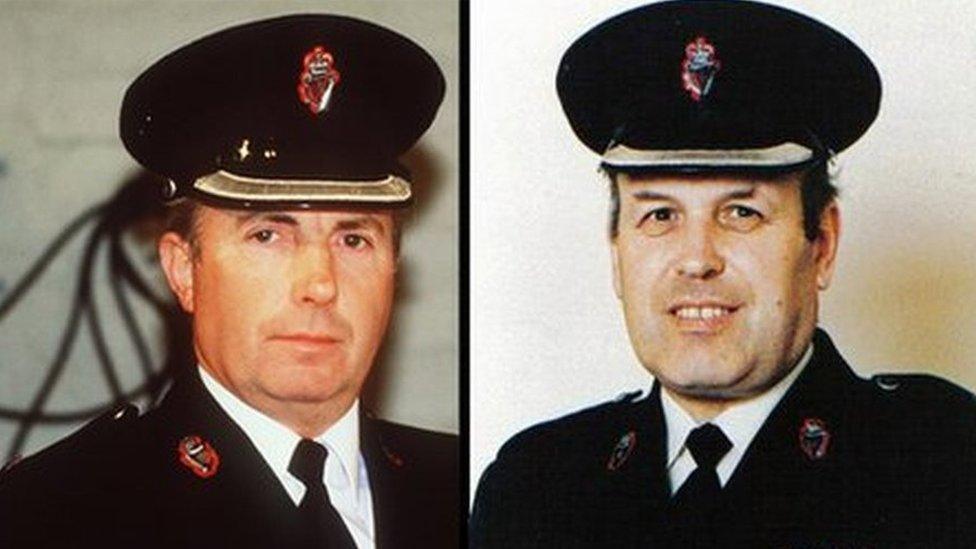
Ch Supt Harry Breen and Supt Bob Buchanan were murdered by an IRA gang in 1989
He headed a tribunal of inquiry in the Republic of Ireland which found collusion between garda (Irish police) officers and the IRA in the murders of two Royal Ulster Constabulary officers.
He said collusion was not just the commissioning of an act, but also an "unawareness of something that one ought morally, legally or officially to oppose".
Different holders of the office of Police Ombudsman have adopted varying definitions.
Marie Anderson, the current ombudsman, has previously said she favoured a broad interpretation, reflecting the views of Lord Stevens and Judge Cory.
But there has been a tweak in phraseology.
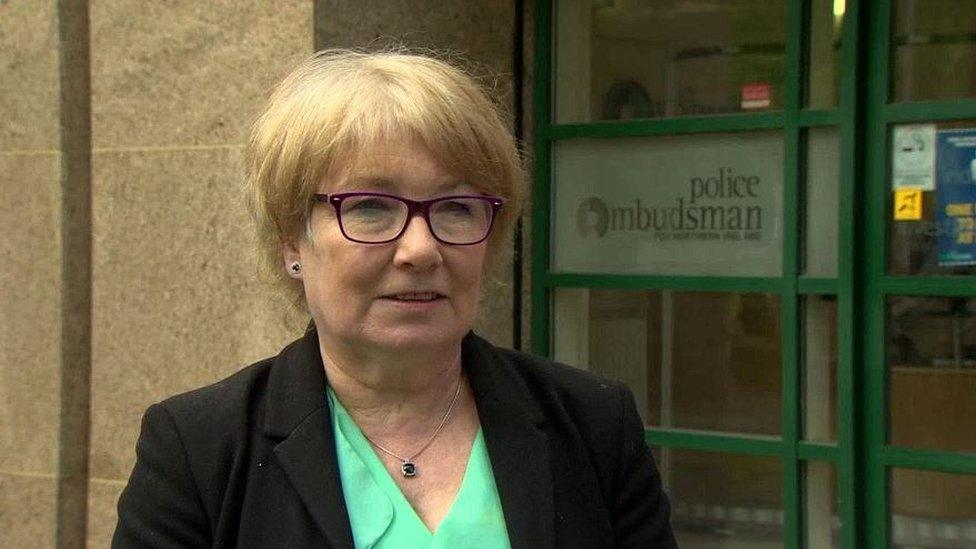
Police Ombudsman Marie Anderson uses the phrase "collusive behaviour"
Her particular terminology is "collusive behaviour" and this has its roots in a court case brought in 2020 by retired Royal Ulster Constabulary (RUC) officers around the ombudsman's powers.
In 2022, a group of officers were granted a judicial review of the ombudsman's legal right to make findings of collusive behaviour by the High Court.
The Northern Ireland Retired Police Officers Association wants statements issued by Marie Anderson to be declared unlawful.
This challenge remains ongoing.
Related topics
- Published5 February 2022
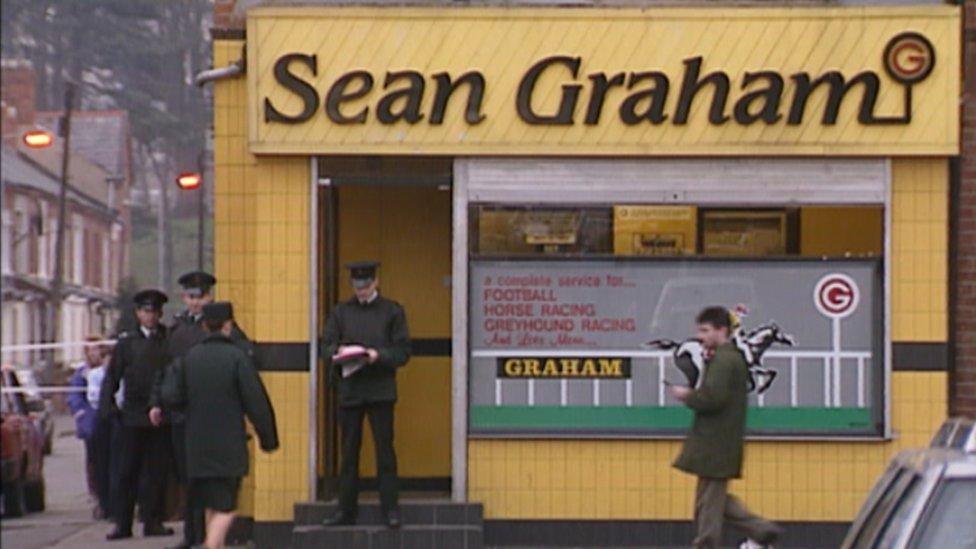
- Published9 June 2016
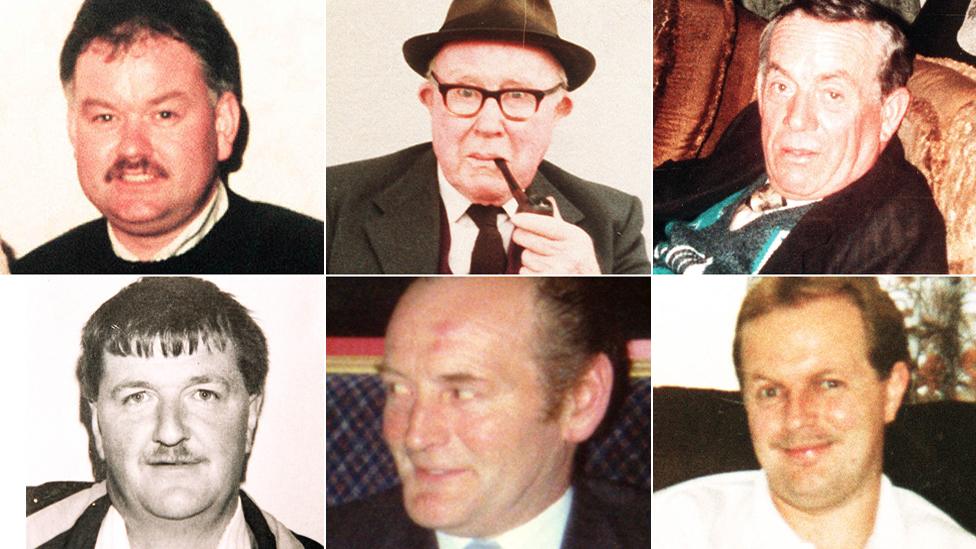
- Published30 November 2020
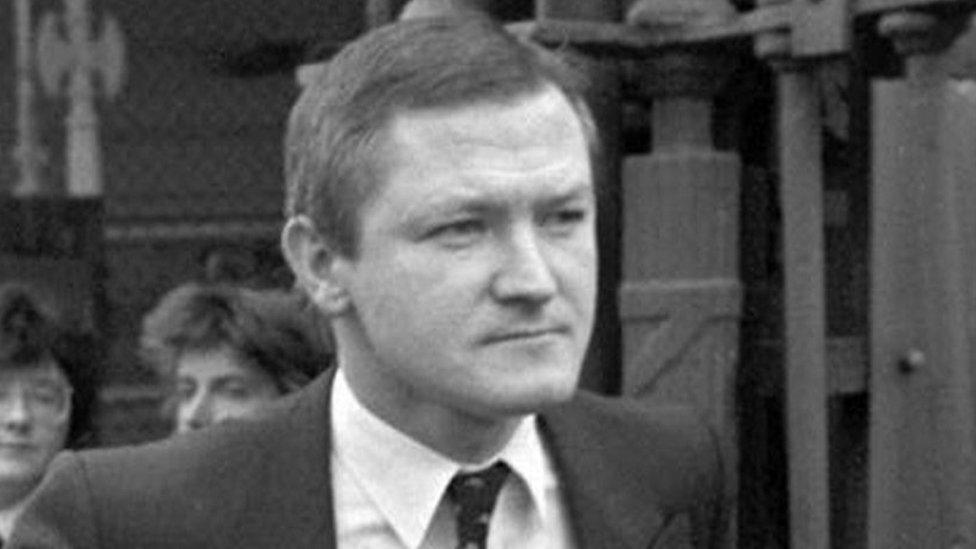
- Published3 December 2013
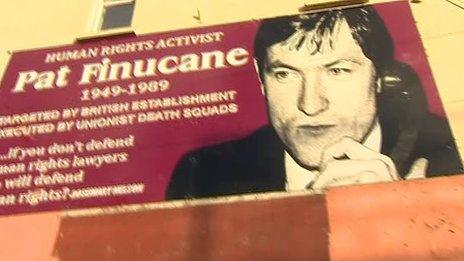
- Published3 December 2013
